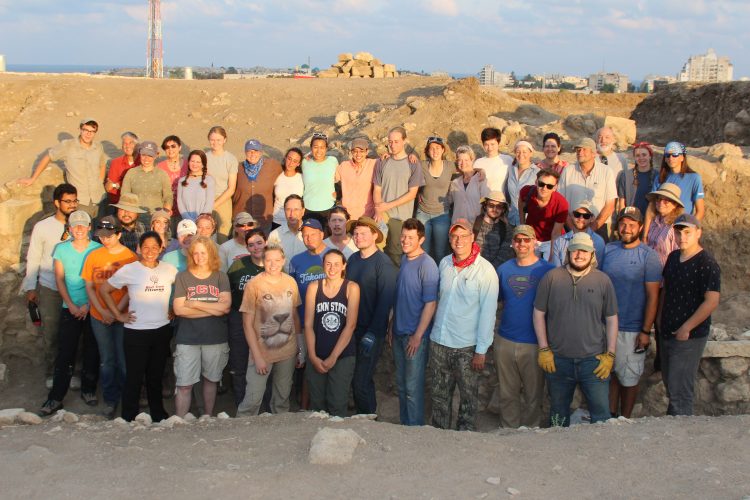Tell Akko: Reflecting on the Importance of Teamwork
Participating in the Tell Akko archaeological field school has been a fantastic experience. The program provided is packed full of opportunities to learn. From the actual work up on the Tell to the lectures from many distinguished speakers of diverse backgrounds to the excursions every weekend, opportunities for growth as an individual are easily acquired. While all these wonderful ideas and opportunities are frequently expressed in many places already though, one facet less telegraphed is the opportunity to work here as part of a team with a clear objective.
While everyone will find their own personal friend groups and people they like to hang out with once here, ultimately living together for four weeks at the Nautical Academy in Akko really creates an atmosphere of unity and teamwork. Together at the Tell, we all strive towards the same goal, and we all also share that experience through the constant interaction off the Tell.
Upon arrival you are assigned two other roommates, every meal is set out at a regular specified time, you wash pottery (for many hours) collectively, you travel together on the bus, and you sit together listening to every lecture. Between the newcomers and the staff, almost everyone participates fully in each activity in some capacity. The first day here, Dr. Ann Killibrew explained how the staff attends every lecture because they truly do care about the program. After a month here, I can confidently say the sense you should get from the leadership is that this truly is a labor of love for them, and they work to support the dig and you in any way they can.
While there is certainly some friction occasionally (not everyone will get along with everyone), overall it is difficult not to feel the pressing unity of the program. The dig itself is just an inherently teamwork-oriented process, and the close proximity with your co-workers for the remainder of the day across the month just adds to the total feeling of everyone working towards the fulfilment of this singular goal.
For myself personally, this togetherness and sharing of a goal bigger than yourself eases the burden in a sense, and creates a way to feed off the energy and momentum of others. An obvious but under-appreciated point, the dig here at Akko would not exist if we could not come together as a cohesive unit. Finding success together as a team always feels sweeter, and the teamwork necessary here is an important aspect everyone should be aware of.

